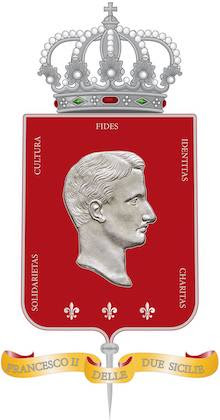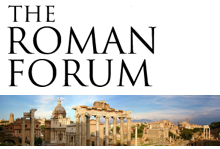Reprinted from Carlsbad 1819
By Nulle Terre Sans Seigneur
“Undoubtedly the most maligned of the pre-unification Italian states, however, is the Kingdom of the Two Sicilies (Naples and Sicily), or “Southern Italy.” Once a kingdom, upon the destruction of its sovereignty it was reduced to a mere “question,” the Southern Question — the ineradicable development gap between North and South, the bane of Italy as a modern state. When the Neapolitans had their Bourbons, they had their pride as a nation; and when they were robbed of their dear monarch, from that point on they have only been a burden, a stereotype of unruly Moorish mafiosi. The destruction of this great and venerable state, the Two Sicilies, ought to be regarded as one of the greatest tragedies of modern history.”
The highest moral virtue in our day is to “amplify marginalized voices.” Consequently, I want to share the story of the Italian legitimists: Parmese and Sicilian neoborbonicos, Modenese filoestenses [loyal to the House of Habsburg-Este], Austro-Lombardian legitimists, Savoyard conservatives who renounced the bogus cause of “Italian unity” so as to retain their own statehood, and of course those brave intransigent Catholic defenders of the temporal power of the Pope.
The Italian Risorgimento is a fascinating period to study since it is the most unambiguous example of how, i) the cause of “national unification” was in fact the first color revolution; ii) said cause served to extinguish the last remnants of the old regime that would not only irrevocably reconfigure world politics, but effectively reduce the political right to a state of unending impotence and mediocrity, detached from the legacy it was robbed of; iii) that there was no such thing as a good and noble “classical liberalism” that was hijacked, but that from the beginning the ideology of liberalism was a centralizing and totalitarian one that employed brutal police repression of those loyal to their deposed sovereigns in the Apennine duchies, and in the Italian South most horrifically reached proportions amounting to an ethnic pogrom that included conditions akin to concentration camps in the Fenestrolle Fort and plans for penal colonies in Argentina and Tunisia, all predating the Anglo-Boer wars; iv) the cause of national unity was an essentially liberal and Masonic elite ideology that led to ruthless wars of aggression and dismemberment of centuries-old states and cultures, and wrought economic impoverishment that spurred massive emigration, all with long-lasting repercussions.
In the first chapter I will give a summary of the ideological origins and practical execution of the Risorgimento, in the second I will discuss the unsung heroes who tried to prevent it, and in the third I will talk about the backward, misgoverned and contentious state that it created, i.e. the Kingdom of Italy. Continue reading










